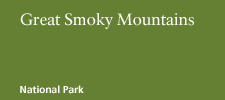|
Backpackers and hikers are subject to all Backcountry Rules and Regulations. Failure to abide by park regulations may subject you to a fine under Title 36, Code of Federal Regulations. Maximum fine for each violation is $5,000 and/or 6 months in jail.
Backcountry Rules and Regulations
1. You must possess a backcountry permit while camping in the backcountry.
2. Camping is permitted only at designated sites and shelters.
3. Use of reserved sites and shelters must be confirmed through the Backcountry Reservation Office.
4. You may stay up to three consecutive nights at a site. You may not stay two nights in a row at a shelter.
5. Maximum camping party size is eight persons.
6. Open fires are prohibited except at designated sites. Use only wood that is dead and on the ground. Use only established fire rings.
7. The use of tents at shelters is prohibited.
8. Food storage: When not being consumed or transported, all food and trash must be suspended at least 10 feet off the ground and four feet from the nearest limb or trunk, or shall be stored as otherwise designated.
9. Toilet use must be at least 100 feet from a campsite or water source and out of sight of the trail. Human feces must be buried in a six-inch-deep hole.
10. All trash must be carried out.
11. All plants, wildlife, and natural and historic features are protected by law. Do not carve, deface, or cut any trees or shrubs.
12. Polluting park waters is prohibited. Do not wash dishes or bathe with soap in a stream.
13. Pets, motorized vehicles, and bicycles are not permitted in the backcountry.
| 








